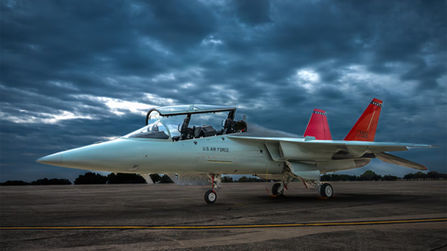Piper Leads General Aviation with Connected Aircraft Management Capabilities
- Garth Calitz
- Mar 29, 2023
- 3 min read

Piper Aircraft has frequently led the General Aviation industry by incorporating the newest technology into its product lineup. Examples include being the first manufacturer to certify Garmin’s GNS 430, and more recently, Garmin’s Collier award-winning Autoland technology. Piper Aircraft is committed to maintaining that leadership position by providing innovative, safety-enhancing technologies throughout its fleet. Today, Piper is pleased to announce a suite of connected aircraft management capabilities available on the G3000-equipped M600/SLS later this spring.

Those capabilities are enabled by Garmin’s new PlaneSync™ technology, which includes a 4G LTE Cellular and Wi-Fi® datalink that streamlines pre-flight and post-flight activities. With PlaneSync™, M600 owners can remotely check key aircraft and flight planning information, including fuel quantity, aircraft location, oil temperature, battery voltage, the current METAR at the aircraft’s location, and more via the Garmin Pilot™ application. PlaneSync™ technology also automatically downloads databases wirelessly while the aircraft is powered down and the owner is away, eliminating the need to manually update databases.

The latest M600/SLS will also include a host of additional updates to existing G3000 software, first previewed to Piper customers at NBAA-BACE 2022 in Orlando, FL. The updated software includes enhancements to the synthetic vision system, onboard weather radar, navigation, flight planning, checklists, weight and balance calculation capabilities, and stabilized approach monitoring. One of the most significant additions is the new 3D SafeTaxi™, which expands situational awareness with an advanced 3D depiction of the ground environment, including airport markers, buildings, and other position markings. Improved taxiway routing guidance provides both graphical and textual information, supporting the pilot at even the most complex airports. Additionally, M600/SLS customers will benefit from glide range ring functionality designed to improve situational awareness in the event of an engine power loss emergency.


“At Piper, we take pride in leading the general aviation industry in innovations inside and outside the cockpit,” said Ron Gunnarson, Vice President of Sales, Marketing, and Customer Support. “We are grateful to continue to build on this tradition of excellence. Our M600/SLS customers will enjoy the convenience of being connected to their M600 and real-time aircraft status via their Garmin Pilot App.”

The Piper M600/SLS with the HALO Safety System is the first general aviation aircraft certified with Garmin Autoland. The revolutionary system supports digital technology that safely lands the aircraft at the nearest suitable airport in the event that the pilot is incapacitated. Additionally, the GarminG3000 avionics suite in current-production M600/SLS aircraft includes auto throttle, Autoland, Emergency Descent Mode, Electronic Stability Protection, Surface Watch and SafeTaxi, all of which are designed to enhance the safe operation of the aircraft. Beyond the flight deck, the six-seat M600/SLS is powered by a Pratt & Whitney PT6A-42A 600 SHP engine. The aircraft has a maximum cruise speed of 274 ktas/507 km/h, a maximum range of 1,658 nm/2,748 km, and a standard useful load of 2,400 lbs/1,089 kg.

Piper Aircraft Inc., headquartered in Vero Beach, FL, offers aviators throughout the world efficient and reliable single- and twin-engine aircraft and is the first general aviation aircraft manufacturer in the world to certify Garmin Autoland. The single-engine M-Class series–the M600/SLS, M500, and M350–offers businesses and individuals elegant performance, value and a superior ownership experience. The Personal Class Archer LX and Archer DLX balance proven performance, efficiency, and simplicity in a piston-powered aircraft. The Trainer Class Pilot 100i, Archer TX, Archer DX, and Seminole aircraft form the most complete and technically-advanced line of pilot training aircraft in the world.




























Comments